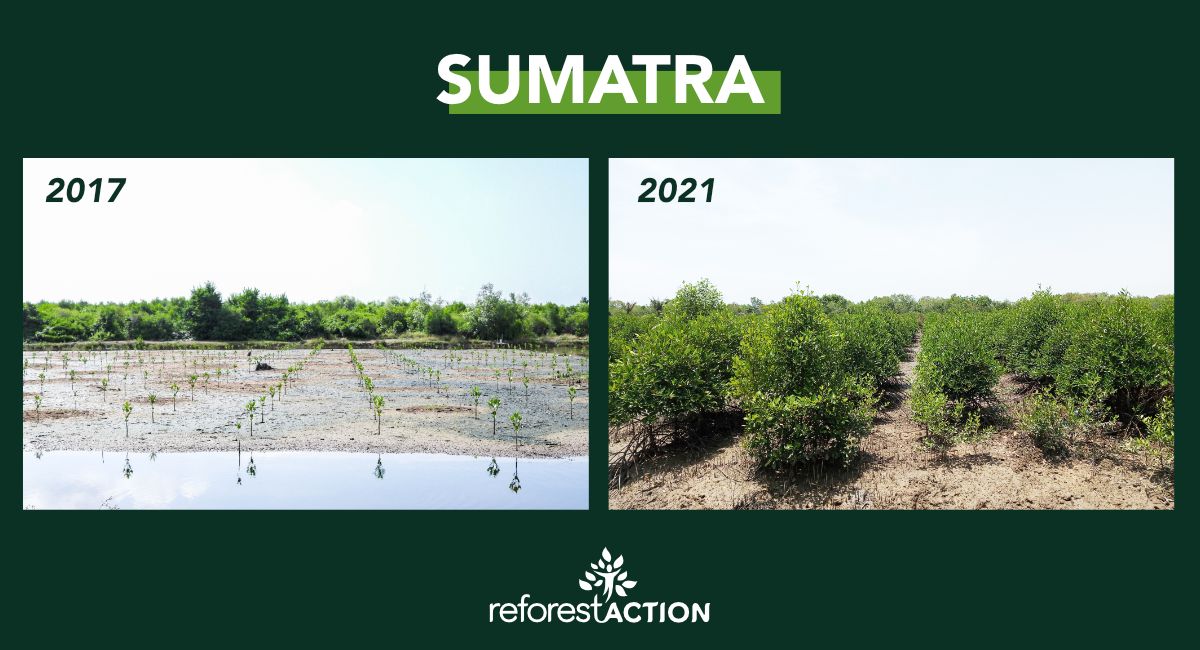In Sumatra, the project to restore the mangrove and protect the coastal green belt in the north of the island, funded by Reforest'Action since 2017, has just reached a new level in terms of trees planted. Since November 2020, 100,000 new mangrove seedlings have taken root as part of the project, bringing to 230,000 the number of trees planted since the beginning of the planting season. The aim of the project is to restore and extend the native mangrove forests of the Indonesian island in order to protect its coastline and secure the economic activities linked to it. Here is a look at the new projects carried out by our technical partner in the field, Yagasu.
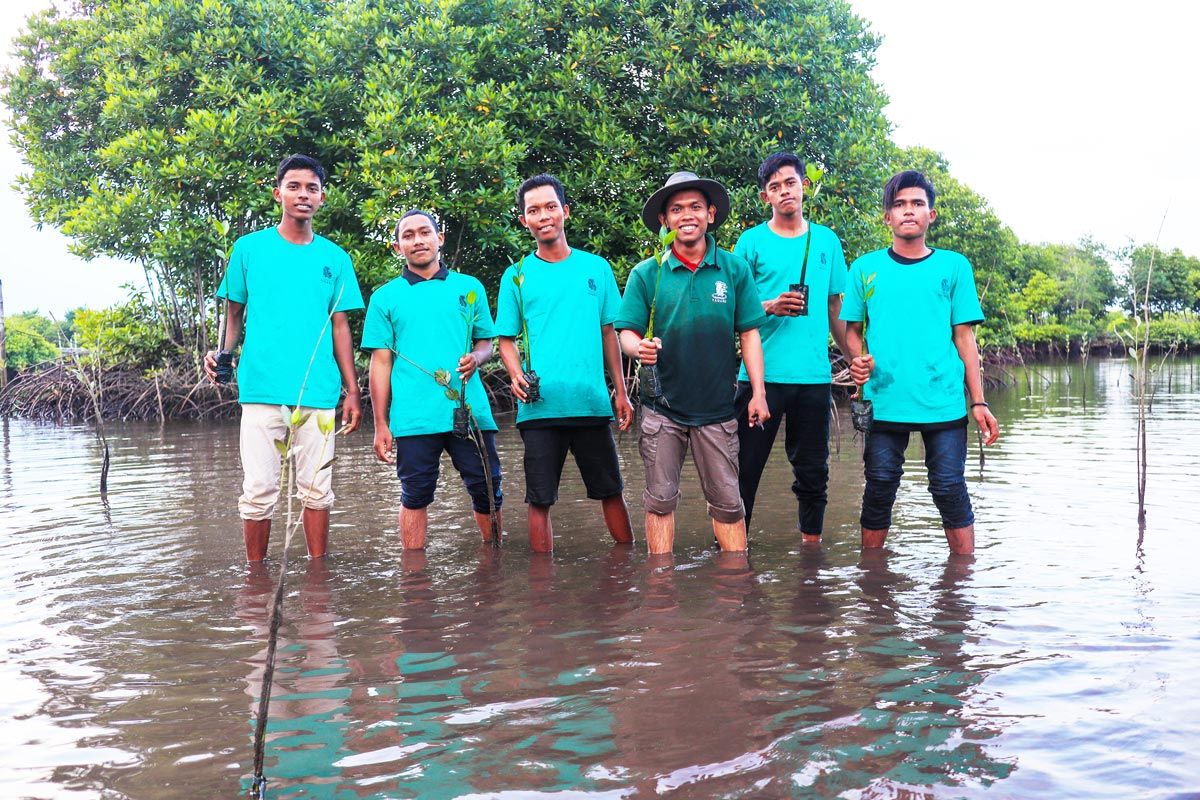
Two new villages join the reforestation project
Thanks to the identification missions of new plantation sites carried out in the field by our technical partner, the Indonesian NGO Yagasu, the 2020-2021 plantation campaign now includes a total of 6 villages and 58 plots of land for 80 hectares of reforestation, compared to 5 villages, 30 plots of land and 40 hectares of land involved last November. The campaign continues to expand, with two new villages joining the project, Sarah Teubee in Aceh Timur District and Sungai Pauh in Langsa District. Four other villages, already involved since last July, remain involved in the planting campaign: Alue Kumba, Alue Raya and Paya Plawi for Aceh Timur District and Cinta Raja for Langsa District.
Over the past five months, ten awareness-raising meetings have been conducted by Yagasu in these villages to mobilise local communities in mangrove restoration. These workshops were attended by 325 men and 32 women, including a hundred young villagers from the new generation. This is proof of the enthusiasm of the populations for the project, which generates numerous environmental and economic benefits.
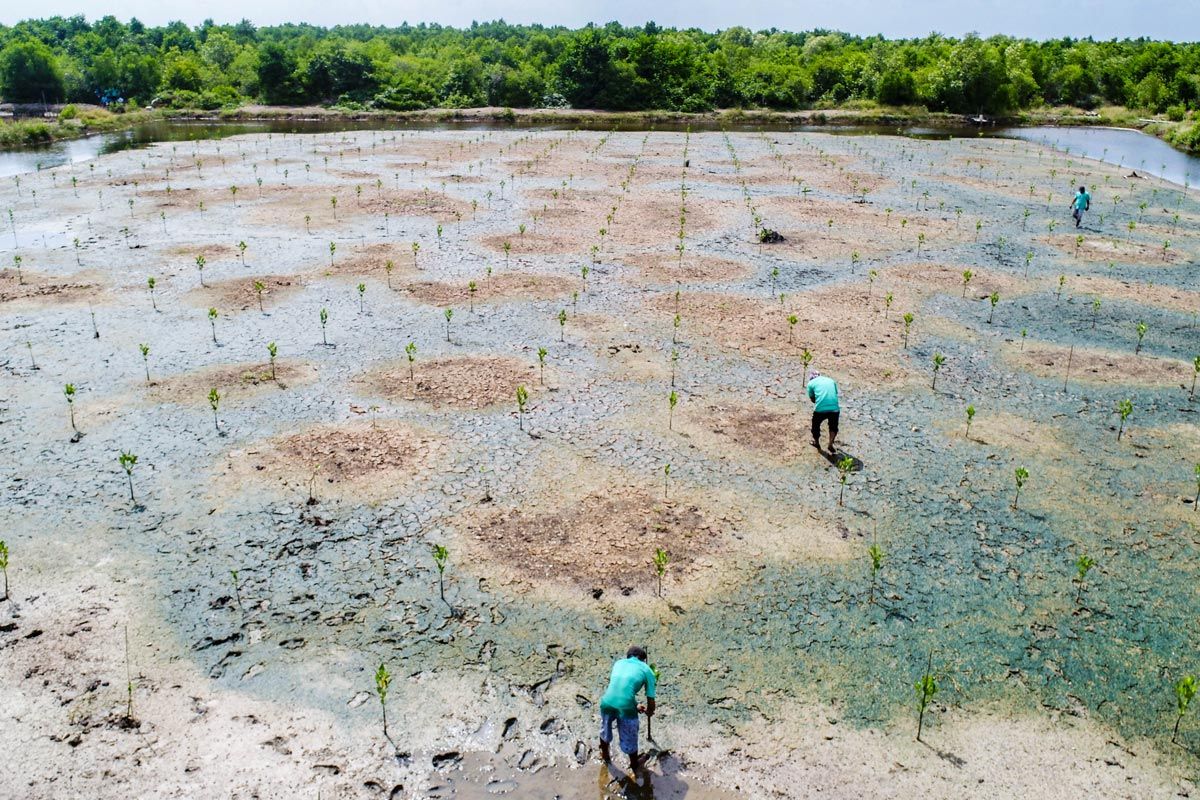
A fourth planting season to restore the Sumatran mangrove
Since November 2020, nursery work has continued to finalise the production of an additional 100,000 mangrove seedlings, whose propagules were harvested from mature mangroves before the end of the fruiting season. Spread across the villages of Sungai Pauh, Cinta Raja and Paya Peulawi, the three community nurseries have produced a total of 230,000 mangroves belonging to the Rhizophora stylosa species since the start of the 2020-2021 season, the first part of which were planted in August 2020, and the second part between December 2020 and February 2021.
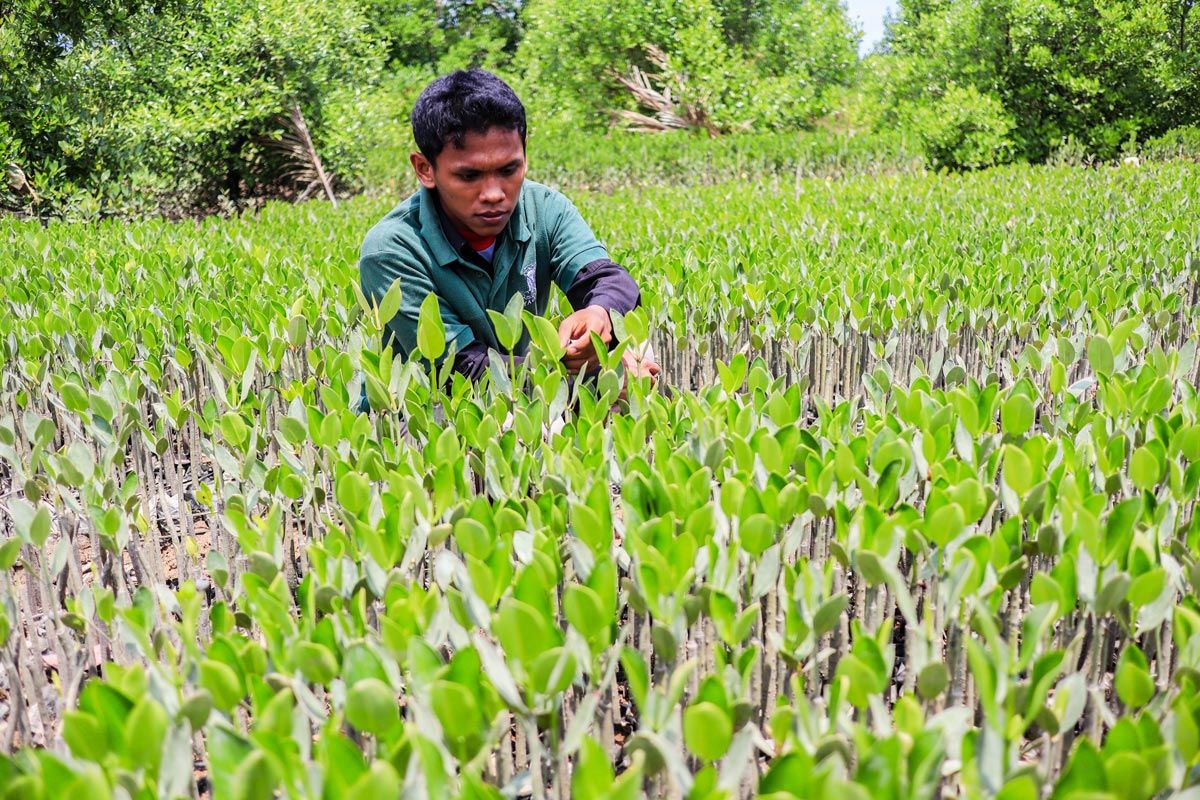
The planting actions, carried out by 460 villagers from Aceh Timur and Langsa districts, were successfully conducted within the identified plots. The mangrove saplings were transported from the nurseries to the planting sites and then planted along bamboo poles that will support them and protect them from the tides.
A project rich in ecosystem services
In Sumatra, the restoration of mangrove ecosystems within the framework of our project aims in particular to increase their environmental carrying capacity, i.e. the threshold beyond which their ecological services are considered to be degraded and no longer contributing to the well-being of the populations. Mangroves are indeed characterised by the richness of their ecosystem services, guaranteeing numerous ecological resources and favouring income-generating activities for local communities. Around the project, a whole ecological landscape is thus unfolding beyond the mere planting of trees. Discover the main ecosystem functions of the mangrove restored thanks to Reforest'Action's funding in Sumatra:
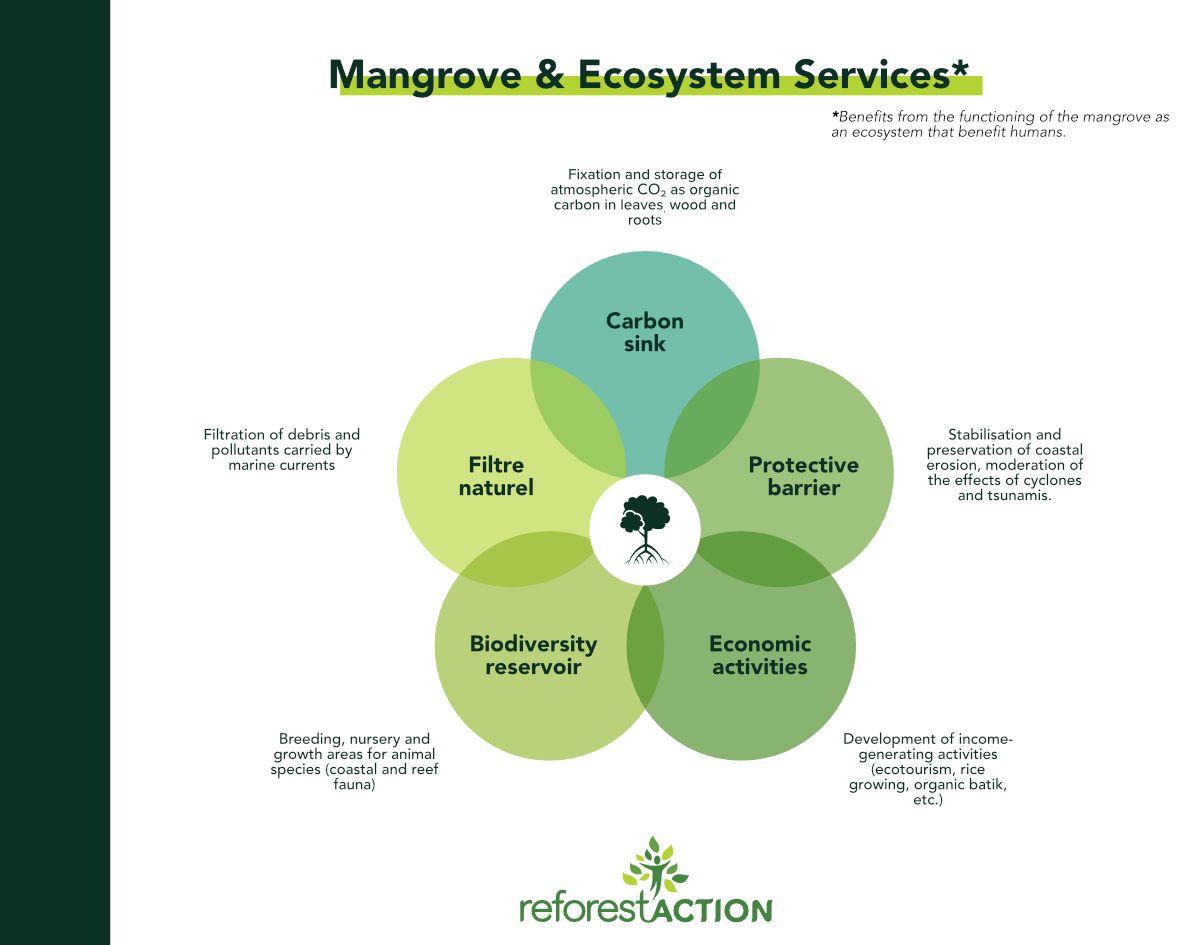
Since November 2020, the project has helped support the production of organic batik, an ink made from the leaves of mangrove trees, which is used to dye traditional local fabrics. Two community groups of women from the villages of Tanjung Rejo and Sicanang have been provided with the necessary equipment for this production and have been trained by our partner Yagasu in the best practices for processing batik made from the natural ink produced by the mangrove. At the same time, Yagasu supports the development of ecotourism, a source of income for local communities, by creating infrastructures to welcome visitors in a way that respects the mangrove ecosystem. Although ecotourism is currently suffering from the health measures linked to the COVID-19 pandemic, villagers are counting on it to resume once the crisis is over.
In total, 2,500 people benefit indirectly from the project, whether through the generation of economic activities or the many ecological services provided by the restored mangrove (filtration of debris and pollutants transported by marine currents, development of aquatic biodiversity, protection of the coastline and the fight against rising water levels, etc.)
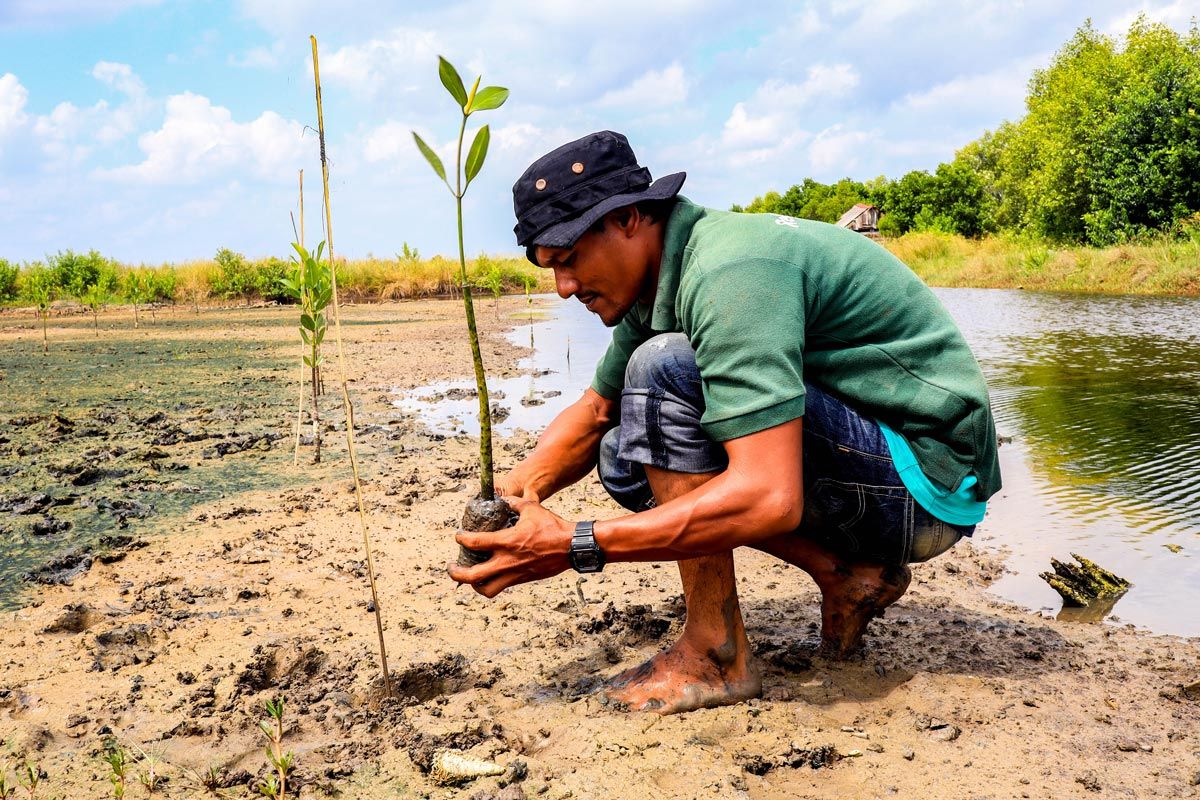
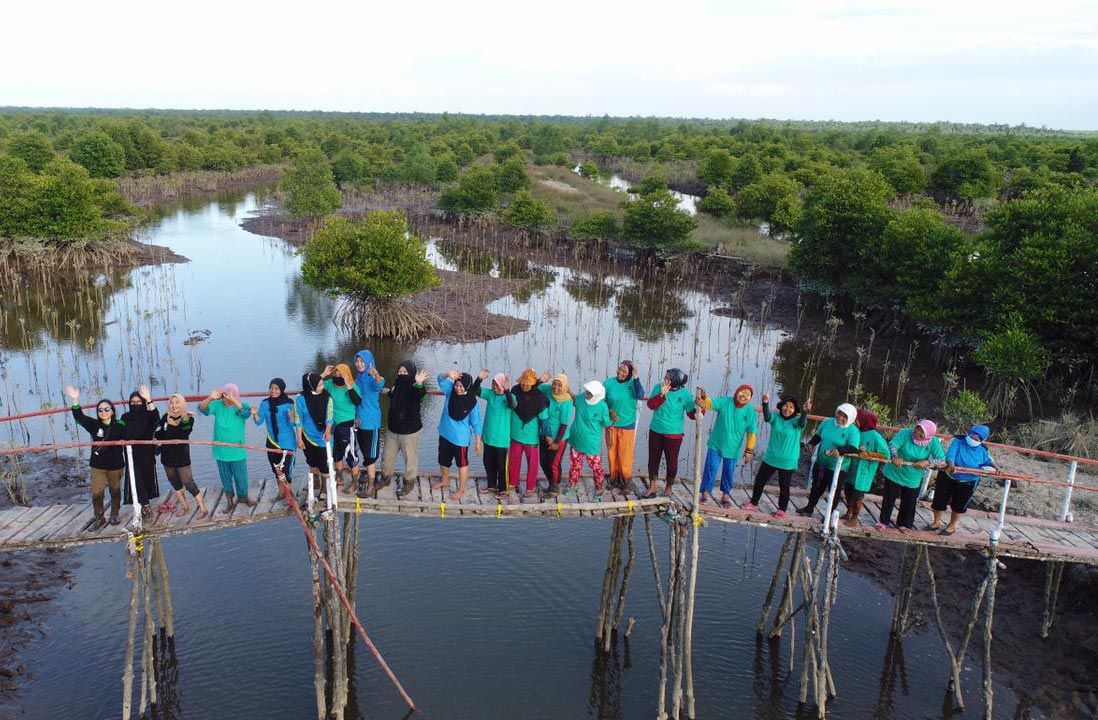
Reforest'Action celebrates 4 years of commitment in Indonesia
In parallel with the planting season, Yagasu continues to monitor the mangroves planted since 2017 to ensure their proper growth. Four years after we began supporting the project, a total of 271,786 trees funded by Reforest'Action have already been planted in the field by Yagasu. Currently, 300,000 additional plants, financed by Reforest'Action for the 2020-2021 season, are in nurseries and will begin to be planted this summer.
